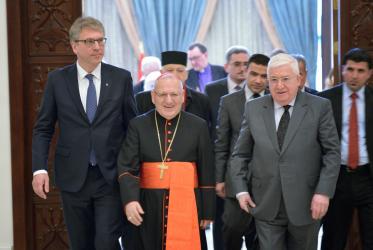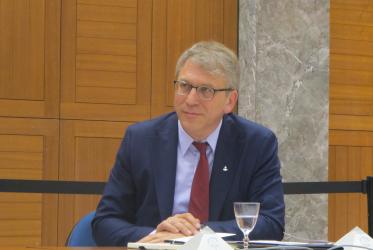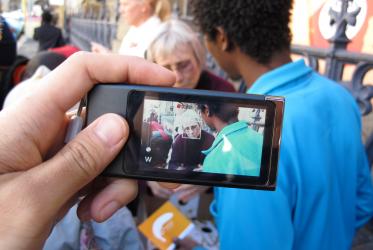Displaying 61 - 80 of 120
The child in the manger and the war in Syria
22 December 2016
Seminar will address youth engagement, religion and violence
19 August 2016
Hielke Wolters: Apostle of mission strategies
01 August 2016
Panel discussion fields ideas on European identity
26 April 2016
WCC conference explores ecological injustice in Uganda
21 April 2016
Lahore bombing shows vulnerability of Pakistanis
31 March 2016
Symposium focuses on religion, violence, extremism
04 February 2016
Land rights focus of panel discussion
17 November 2015
Conflict reporting fails women
06 October 2015












